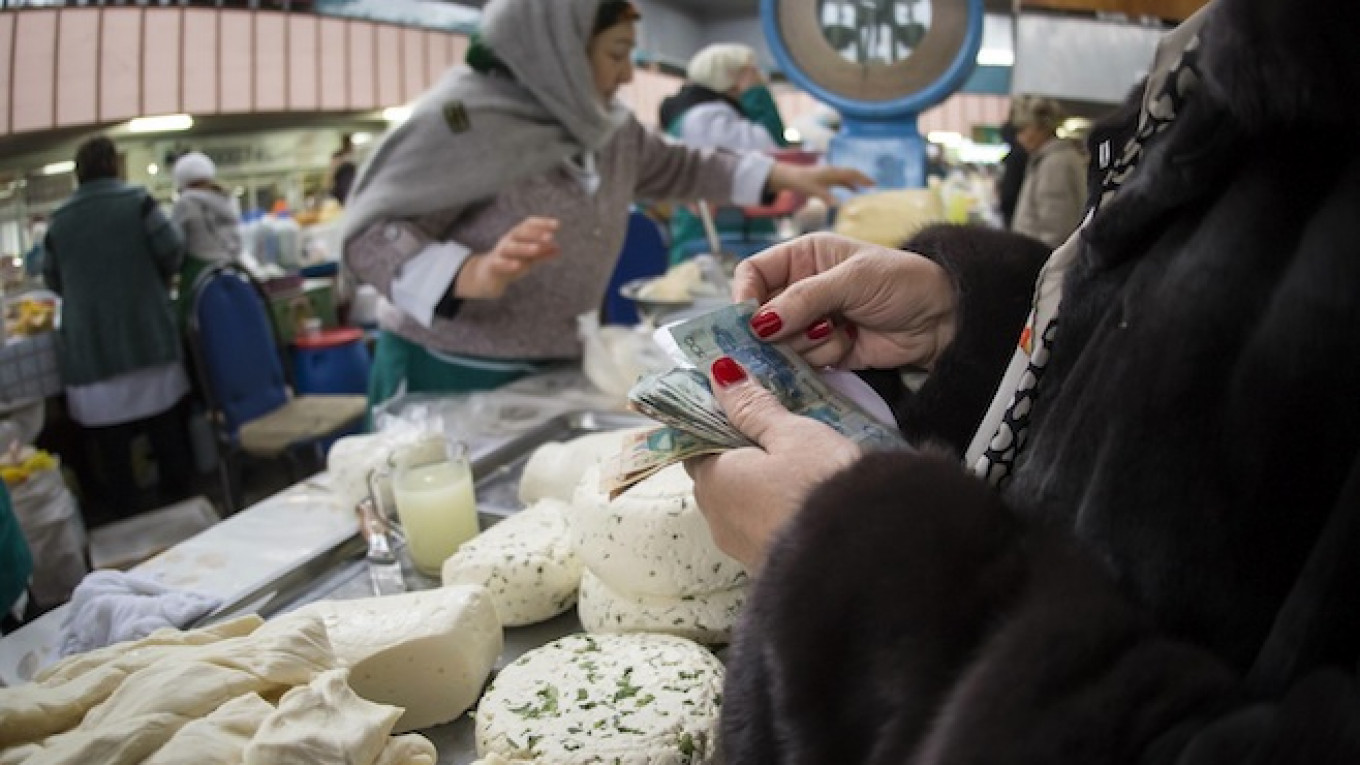LONDON — The ruble's precipitous depreciation over the past year is forcing many of Russia's former Soviet trading partners into devaluations, while others are struggling to defend their currencies from collapse.
The ruble has fallen 8 percent this year versus the dollar after shedding 43 percent in 2014, driven down by lower oil prices, stagnating growth and Western sanctions over Moscow's role in Ukraine.
Most ex-Soviet states are heavily reliant on Russia for trade, investment and remittances.
Here is a list of moves by central banks across the former Soviet Union this year:
Ukraine
The hryvna has fallen about 40 percent since Feb. 5 when the central bank abandoned the dollar auctions it had been using to support its currency. Instead it raised interest rates by 550 bps to 19.5 percent. The country has enough reserves to pay for just five weeks of imports.
Belarus
The central bank devalued the Belarus ruble by 18 percent in a series of steps early in January. It forecasts the currency to weaken 3 to 7 percent in 2015 against the euro-dollar-Russian ruble basket.
Moldova
The official rate of Moldova's lei fell 1.9 percent to a new record low on Tuesday. It has fallen 25 percent in 2015. The central bank raised interest rates by 500 basis points on Tuesday..
Armenia
The central bank raised interest rates on Feb. 10 to 10.5 percent from 9.5 percent to protect itself from the fallout of the Russian crisis. Its dram currency has fallen about 15 percent in the past year.
Georgia
The central bank raised interest rates on Feb. 11 and sold $40 million to support its lari currency which has depreciated around 10 percent this year against the dollar
Azerbaijan
Oil-exporter Azerbaijan said Monday that it had abandoned a peg between the manat and the dollar in favor of a dollar-euro basket. Azeri reserves fell by $1 billion last month.
Turkmenistan
Gas-rich Turkmenistan devalued the manat by about 19 percent to 3.5 to the dollar, effective from Jan. 1.
Kazakhstan
The tenge was devalued by 19 percent against the dollar last February and authorities have refused to devalue again, even it has appreciated since then against the Russian ruble, the currency of Kazakhstan's main trade partner. Non-deliverable forwards (NDFs) are pricing a 15 percent tenge devaluation to the dollar in the next three months.
A Message from The Moscow Times:
Dear readers,
We are facing unprecedented challenges. Russia's Prosecutor General's Office has designated The Moscow Times as an "undesirable" organization, criminalizing our work and putting our staff at risk of prosecution. This follows our earlier unjust labeling as a "foreign agent."
These actions are direct attempts to silence independent journalism in Russia. The authorities claim our work "discredits the decisions of the Russian leadership." We see things differently: we strive to provide accurate, unbiased reporting on Russia.
We, the journalists of The Moscow Times, refuse to be silenced. But to continue our work, we need your help.
Your support, no matter how small, makes a world of difference. If you can, please support us monthly starting from just $2. It's quick to set up, and every contribution makes a significant impact.
By supporting The Moscow Times, you're defending open, independent journalism in the face of repression. Thank you for standing with us.
Remind me later.






